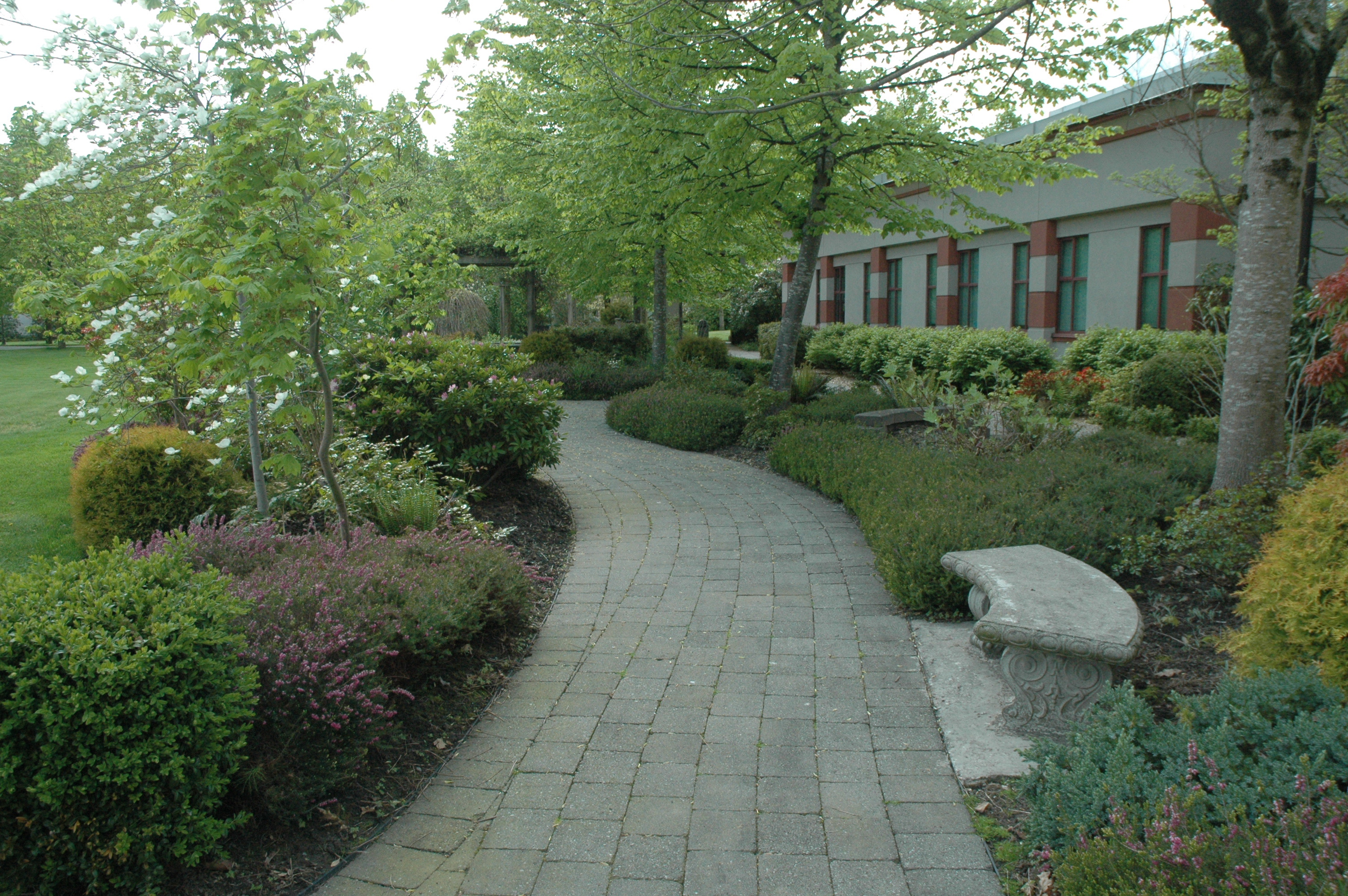An interdisciplinary course at UFV is making plans to recreate the Shakespeare Garden, which was once a beloved feature of UFV’s former Chilliwack North campus. It was shut down in 2012 following the completion of the new campus on the south side of Chilliwack. Classes and programs formerly headquartered at Chilliwack North relocated, and the old campus, together with the Shakespeare Garden, was demolished in 2016.
Interdisciplinary Studies 300 (IDS 300) has taken up the challenge of designing a new Shakespeare Garden. IDS 300 is an intersection of multiple academic disciplines, including biology, English, Indigenous studies, and others, with different topics being covered each semester. The current semester’s class has the task of designing the new garden. Next semester’s IDS 300F class will begin construction on the Chilliwack Education Park (CEP) grounds.
The garden will be located on the south side of Building A at CEP, but the exact position hasn’t been chosen yet. Work on the first phase of development – planting and landscaping – is expected to be completed in April 2020. Alan Reid, a UFV biology professor who helped design the IDS 300 course, said that the garden will always be a work in progress.
“I don’t think a garden is ever complete. We know so little about plants that we would fool ourselves into thinking this is the ultimate and it is done,” Reid said. “We should be aware that ecosystems are dynamic, alive, and filled with passion. If we say it is complete, then we are stifling that growth. We must keep passion alive and we must make a conscious effort that this is a living testament to unity and harmony.”
The Shakespeare Garden got its name because it was designed in part as an homage to the works of William Shakespeare, and included species of plants mentioned in his plays. UFV’s new Shakespeare Garden is not only about Shakespeare, though. Indigenous culture and learning have always been an important component of the garden, and this will be even more the case in its new incarnation.
The new garden will include bilingual signs in English and Halq’eméylem and include a space for storytelling and performance, according to Melissa Walter, UFV English department head. Both introduced and native B.C. plants will be included, sometimes with the latter standing in for the former, such as western red cedar in place of other cedar species that Shakespeare would have known and referred to. The garden is in many ways a symbol of reconciliation. The planning process “involved learning about Indigenous plants as well as Shakespeare-related plants and considering how these plants could grow together well in one garden,” Walter said.
The original Shakespeare Garden at UFV was also an interdisciplinary project. It was the brainchild of horticultural teacher Nancy Moore and her students, who designed and built the old garden at Chilliwack North. The project had input from the agriculture, theatre, English, and health sciences departments of UFV, and received funding from Friends of the Theatre, a local community group.
The concept of a Shakespeare Garden is not unique to Chilliwack. UFV’s former garden was featured in the book Shakespeare in the Garden by Mick Hales, which showcased several Shakespeare Gardens across Canada, the United Kingdom, and the United States. According to the book, one section of UFV’s garden was modelled after a passage from Shakespeare’s A Midsummer Night’s Dream:
I know a bank where the wild thyme blows,
Where oxlips and the nodding violet grows,
Quite over-canopied with luscious woodbine,
With sweet musk-roses and with eglantine.
The new Shakespeare Garden is also intended as a place of healing and refuge.
“A garden is a place of reflection, solitude, and mindfulness, and we often forget that plants are an integral part of our lives,” Reid said. “Anyone that needs an area to sit quietly or feel the grass on their bare feet will be enriched by a garden. If we can bring awareness of plants, literature, harmony, reconciliation, and a sense of wonder to just one person then the garden has enriched all of us.”
Image: UFV Flickr


